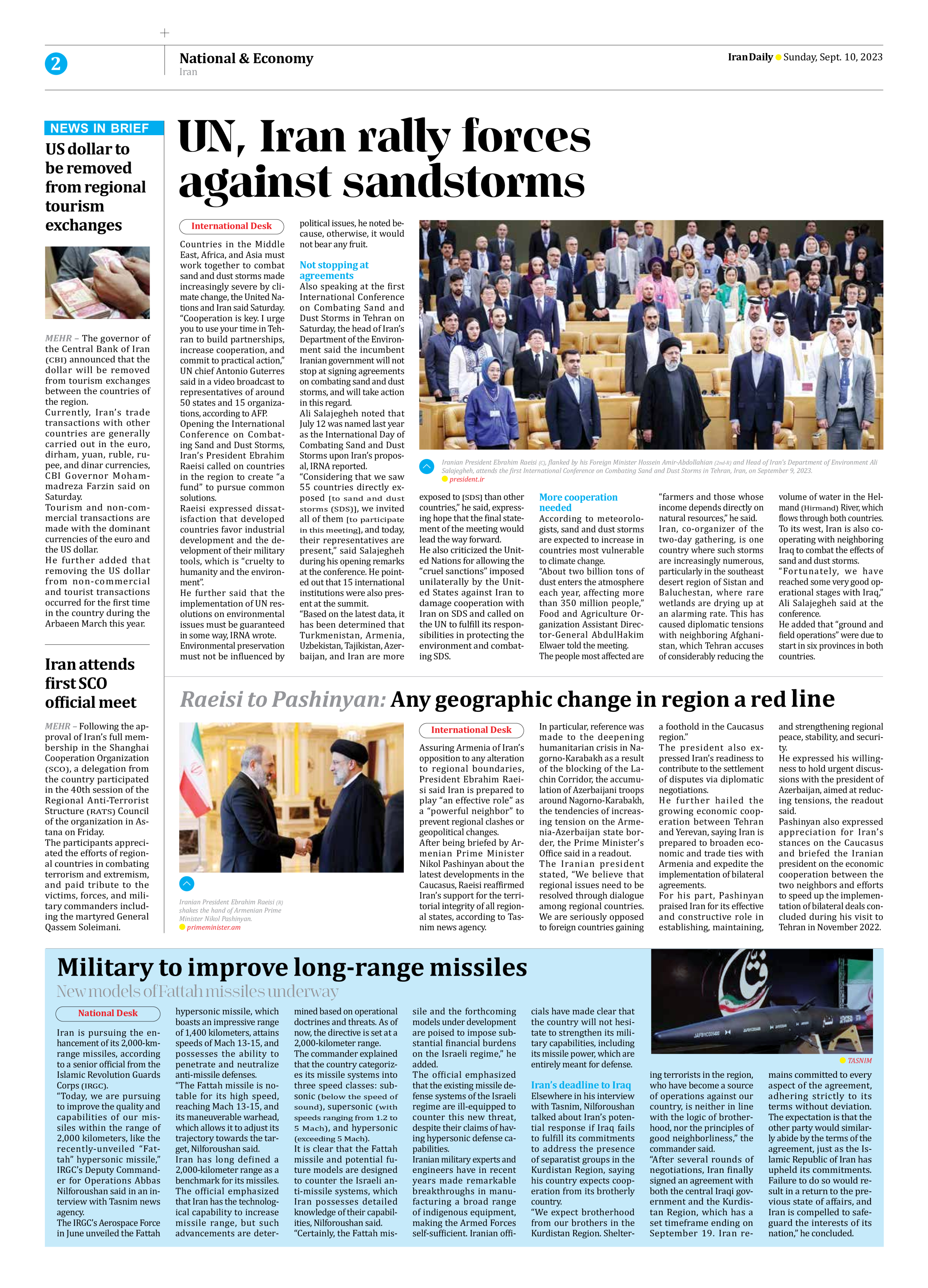
UN, Iran rally forces against sandstorms
Countries in the Middle East, Africa, and Asia must work together to combat sand and dust storms made increasingly severe by climate change, the United Nations and Iran said Saturday.
“Cooperation is key. I urge you to use your time in Tehran to build partnerships, increase cooperation, and commit to practical action,” UN chief Antonio Guterres said in a video broadcast to representatives of around 50 states and 15 organizations, according to AFP.
Opening the International Conference on Combating Sand and Dust Storms, Iran’s President Ebrahim Raeisi called on countries in the region to create “a fund” to pursue common solutions.
Raeisi expressed dissatisfaction that developed countries favor industrial development and the development of their military tools, which is “cruelty to humanity and the environment”.
He further said that the implementation of UN resolutions on environmental issues must be guaranteed in some way, IRNA wrote.
Environmental preservation must not be influenced by political issues, he noted because, otherwise, it would not bear any fruit.
Not stopping at agreements
Also speaking at the first International Conference on Combating Sand and Dust Storms in Tehran on Saturday, the head of Iran’s Department of the Environment said the incumbent Iranian government will not stop at signing agreements on combating sand and dust storms, and will take action in this regard.
Ali Salajegheh noted that July 12 was named last year as the International Day of Combating Sand and Dust Storms upon Iran’s proposal, IRNA reported.
“Considering that we saw 55 countries directly exposed [to sand and dust storms (SDS)], we invited all of them [to participate in this meeting], and today, their representatives are present,” said Salajegheh during his opening remarks at the conference. He pointed out that 15 international institutions were also present at the summit.
“Based on the latest data, it has been determined that Turkmenistan, Armenia, Uzbekistan, Tajikistan, Azerbaijan, and Iran are more exposed to [SDS] than other countries,” he said, expressing hope that the final statement of the meeting would lead the way forward.
He also criticized the United Nations for allowing the “cruel sanctions” imposed unilaterally by the United States against Iran to damage cooperation with Iran on SDS and called on the UN to fulfill its responsibilities in protecting the environment and combating SDS.
More cooperation needed
According to meteorologists, sand and dust storms are expected to increase in countries most vulnerable to climate change.
“About two billion tons of dust enters the atmosphere each year, affecting more than 350 million people,” Food and Agriculture Organization Assistant Director-General AbdulHakim Elwaer told the meeting.
The people most affected are “farmers and those whose income depends directly on natural resources,” he said.
Iran, co-organizer of the two-day gathering, is one country where such storms are increasingly numerous, particularly in the southeast desert region of Sistan and Baluchestan, where rare wetlands are drying up at an alarming rate. This has caused diplomatic tensions with neighboring Afghanistan, which Tehran accuses of considerably reducing the volume of water in the Helmand (Hirmand) River, which flows through both countries.
To its west, Iran is also cooperating with neighboring Iraq to combat the effects of sand and dust storms.
“Fortunately, we have reached some very good operational stages with Iraq,” Ali Salajegheh said at the conference.
He added that “ground and field operations” were due to start in six provinces in both countries.







